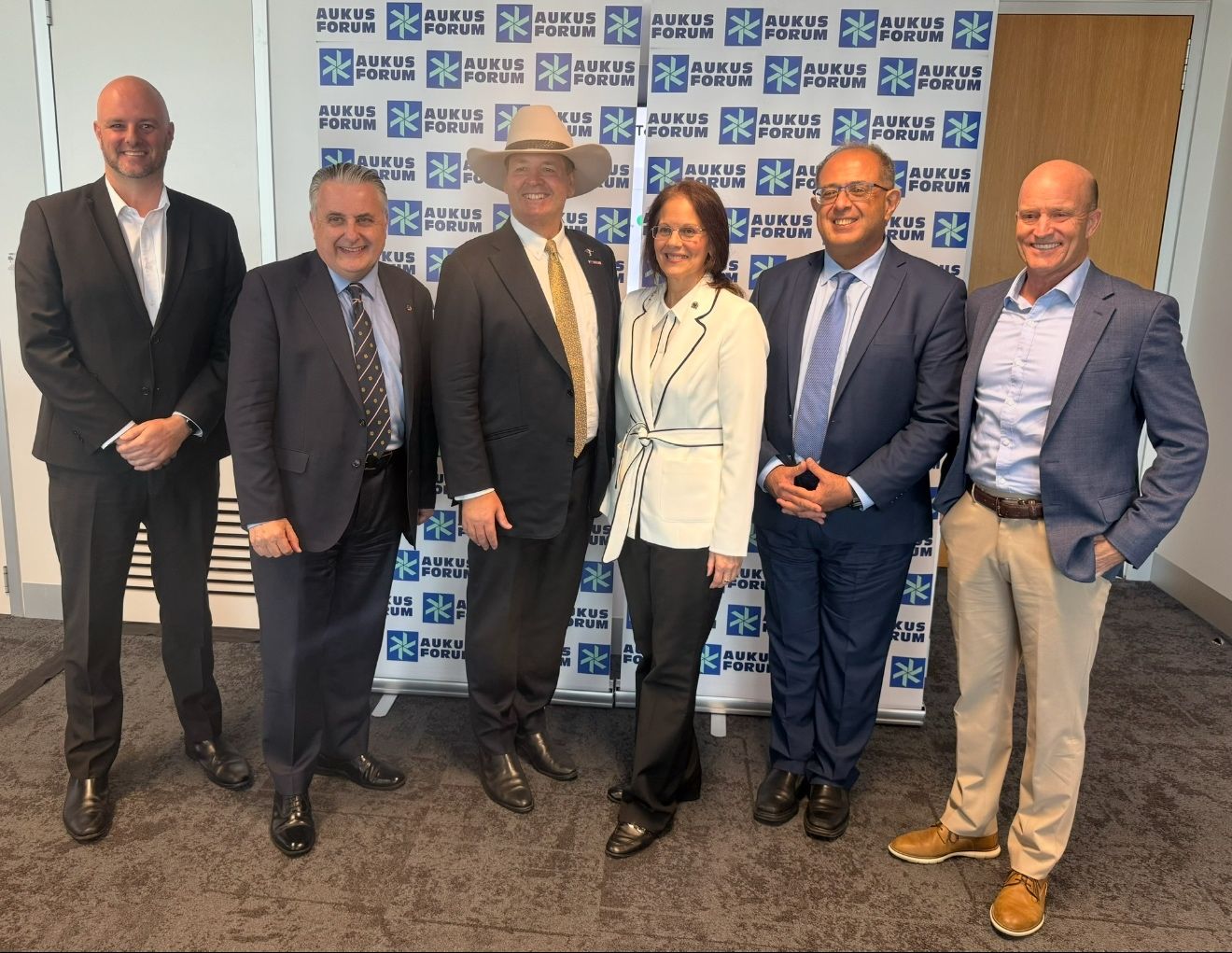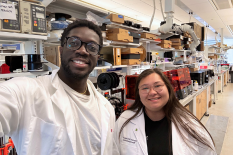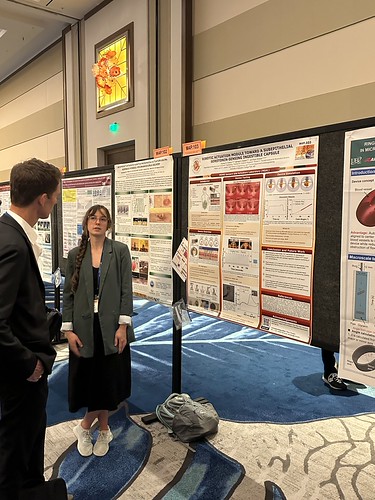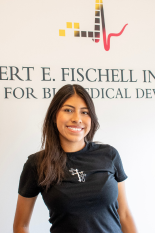News Story
BIOE Announces 2025 Fischell Fellows at EPIC Retreat
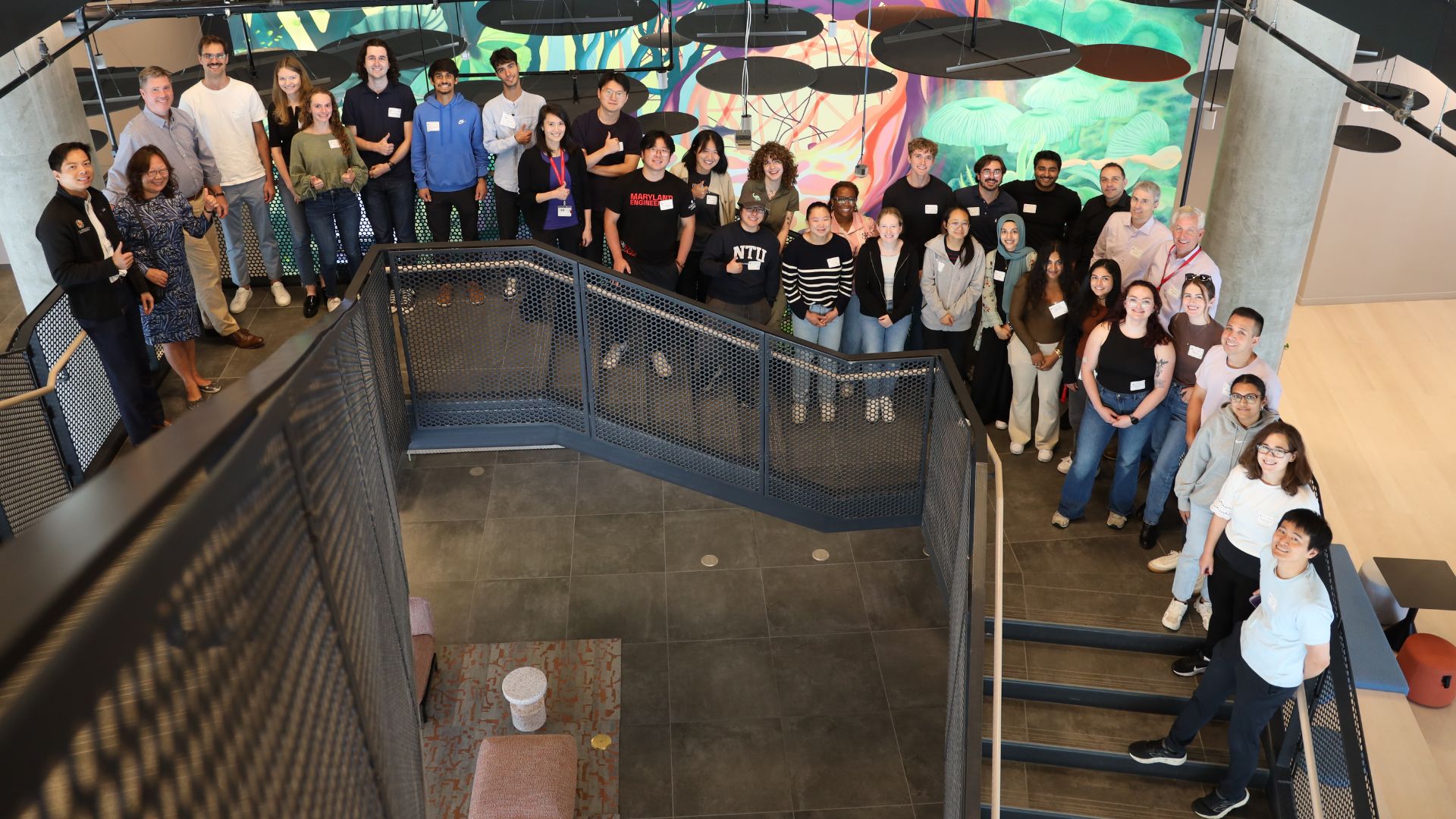
The Fischell Department of Bioengineering (BIOE) hosted its eighth annual Enhancing and Promoting Interactions and Conversations (EPIC) Retreat at the recently established Edward and Jennifer St. John Center for Translational Engineering and Medicine (CTEM) at the University of Maryland BioPark in Baltimore. This event brought together students, faculty, and staff to share new research, strengthen collaborations, and welcome the 21 incoming graduate students. At the retreat, BIOE Ph.D. candidates Ryan B. Felix and Darby Steinman were announced as the 2025 Fischell Fellows.
This year’s retreat carried special significance by taking place at CTEM, a collaborative hub uniting the University of Maryland, College Park (UMCP), and the University of Maryland School of Medicine (UMSOM). The two institutions are working together to improve health care and patient outcomes by bridging engineering, computer science, and medicine. As the proud home of CTEM, UMCP and UMSOM are leading efforts to address urgent health challenges and develop innovations that improve lives.
The Fischell Fellowship, named in honor of inventor and department namesake Dr. Robert E. Fischell, recognizes outstanding graduate students who are pursuing applied research and product design with the potential to transform human health.
Fourth-year doctoral candidate Ryan B. Felix, jointly advised by BIOE Department Chair and Professor John P. Fisher and UMSOM Professor Peter Hu, is driven by the intersection of artificial intelligence and health care. His research focuses on developing AI-powered decision support tools for clinician use and advancing autonomous medical robotics. With the support of the fellowship, Felix plans to build technologies for rapid prototyping of complex tissue constructs for regenerative medicine and pharmaceutical testing, as well as AI-driven tools that help clinicians during the early stages of trauma care.
“Dr. Robert E. Fischell is our department’s namesake for good reason, and receiving this fellowship in his honor is both humbling and gratifying,” Felix said. “As engineers, our responsibility is to create something that truly benefits patients. The Fischell Fellowship will help me move closer to that goal.”
Felix was drawn to BIOE for its nationally recognized program and its proximity to institutions such as NIH, FDA, and Johns Hopkins. He credits Maryland’s unique ecosystem of research and entrepreneurship for offering an ideal environment to make translational contributions to human health.
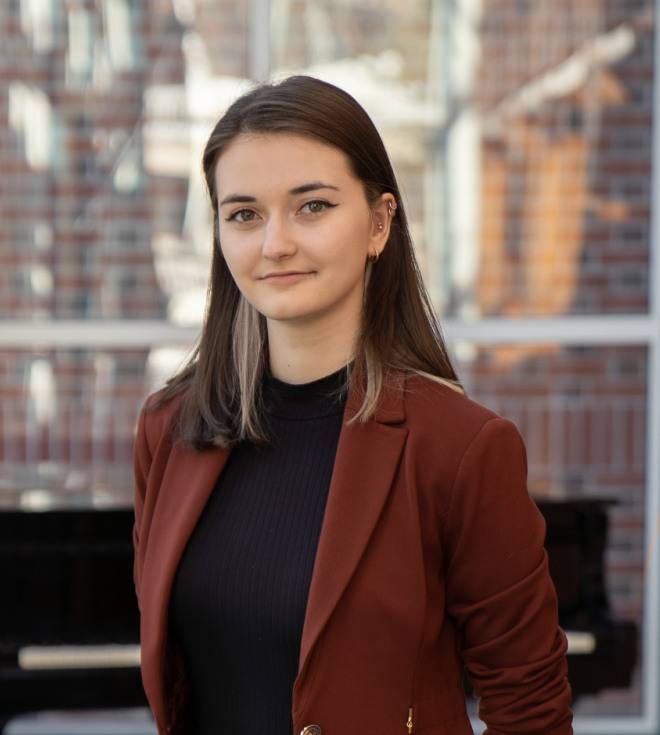
Darby Steinman is a fourth-year doctoral candidate who is currently advised by Chemical and Biomolecular Engineering assistant professor Hannah Zierden. Steinman plans to pursue a long-term career in academia with a focus on women’s health. Her research centers on reproductive conditions and therapeutic development, with the fellowship supporting her efforts to expand her work into in vivo models. By applying focused questions in mouse studies, Steinman aims to uncover critical interactions in reproductive health and build on her earlier findings to translate them into more physiologically relevant systems.
“I am honored to receive the Fischell Fellowship and greatly appreciate the department’s support,” Steinman said. “This opportunity strengthens my commitment to expanding knowledge in bioengineering and making a meaningful impact in the field.”
Steinman came to UMD after completing her bachelor’s degree in biomedical engineering at Rensselaer Polytechnic Institute. She chose the program not only for its strong research reputation, but also for the collaborative and welcoming culture of the BIOE community.
“The faculty were not only knowledgeable but also genuinely supportive, and I could immediately tell that I would receive strong mentorship here,” Steinman said.
Steinman also underscored the importance of collaboration in research. Much of her progress has come from working across disciplines, learning new techniques, and exploring different experimental approaches. She sees collaboration not only as a way to broaden knowledge, but also as a critical driver of innovation and impact in bioengineering.
Published September 8, 2025




